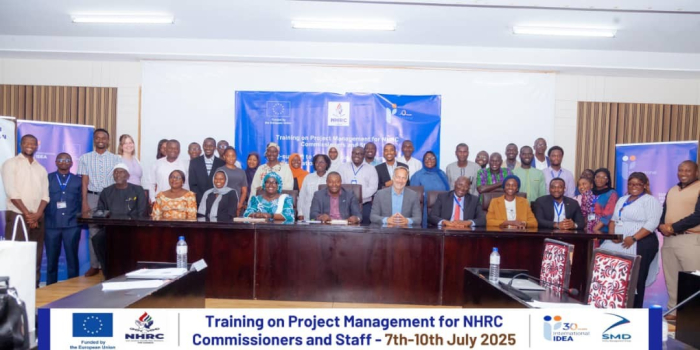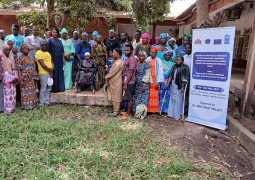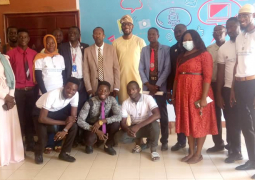
The training, held under the EU-funded CODE project, was aimed at building the capacity of NHRC staff on project planning, delivery, resource mobilisation, and proposal development; key areas for ensuring effective and impactful project implementation.
At the closing ceremony, Mrs. Jainaba Faye, Head of Country Office for International IDEA, highlighted the importance of the training in enhancing the NHRC’s ability to design and manage projects that promote human rights.
“Over the past four days, we have come together with a shared purpose- to strengthen the Commission’s ability to deliver well-organized, sustainable projects that advance the cause of human rights,” she said. “This training was not just about learning tools and methods—it was about transformation, and it’s been inspiring to witness that process among all of you.”
The training, Mrs Faye further explains, was carefully structured around four pillars aligned with the operational needs of the NHRC, focusing on both individual skills and institutional performance.
She thus encouraged participants to apply the knowledge gained to real-world challenges facing the Commission, especially in defending the rights of marginalised communities.
“As members of the Human Rights Commission, you carry a profound responsibility. Project management is not just about meeting deadlines or staying on budget. It is about translating a vision of justice and equity into tangible results.”
Raphaël Brigandi, Deputy Head of Mission at the European Union Delegation to The Gambia, also highlighted that effective project delivery requires more than technical competence. It must be rooted in strong values and a strategic mindset.
“Project management is not merely a checklist of tasks. It demands clarity of purpose, integrity, and a commitment to delivering real change,” Brigandi stated.
“Through the EU-funded CODE project, and in partnership with International IDEA, we are proud to support the NHRC in strengthening its capacity to deliver results that reflect human rights principles and meet the needs of Gambian citizens.”
He praised the professionalism and potential of the NHRC team, urging them to continue growing in their roles and contributing to a culture of accountability, transparency, and independence in the country’s human rights landscape.
The chairman of the National Human Rights Commission, Mr. Emmanuel D. Joof, equally advised his staff to make the best use of the training while thanking the partners for the initiative.
Read Other Articles In National News

Roundtable discussion on good decentralization practice underway
May 8, 2025, 11:57 AM




